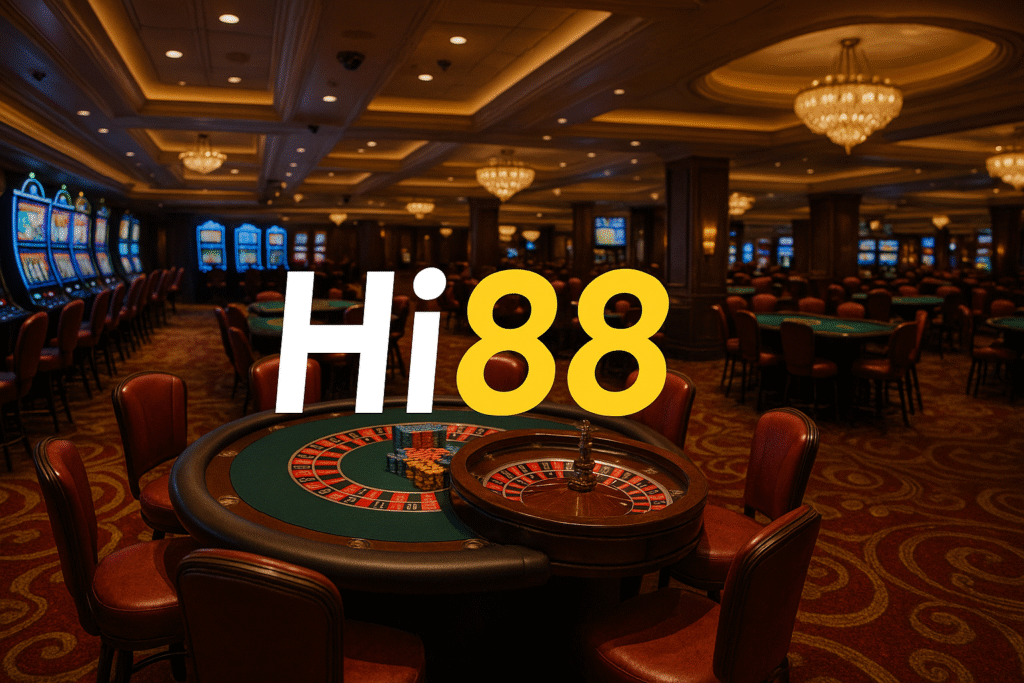
Casino games are more than just a source of entertainment—they are carefully crafted experiences designed to keep players engaged and coming back for more. From the layout of the reels to the sound effects and reward systems every detail is based on psychological principles that influence behavior. Platforms like Hi88 apply these techniques to create games that are not only enjoyable but also highly immersive.
One of the most powerful psychological tools in casino game design is the use of variable rewards. Unlike fixed rewards where players know exactly what they will get variable rewards keep outcomes unpredictable. This taps into a principle known as operant conditioning where the brain becomes more responsive to irregular positive reinforcement. It is the same mechanism that keeps people hooked on social media or mobile games and it works equally well in gambling.
Another important factor is visual design. Bright colors flashing lights and dynamic animations are not just for show—they are proven to increase excitement and attention. Slot machines often use red and gold tones because they are associated with luck and urgency. Fast spinning reels and celebratory graphics when players win even small amounts can make the experience feel more thrilling than it really is.
Sound plays a crucial role too. Winning sounds even from low-payout combinations are designed to trigger positive emotions. Background music sets the pace and tone of the game creating an atmosphere that keeps players engaged. Many players do not realize how much these subtle audio cues influence their mood and decisions while playing.
Game designers also use near-miss outcomes to extend playtime. A near-miss occurs when a player almost hits a jackpot or winning line—like two jackpot symbols landing next to a third that just misses. Even though the player loses the brain often registers it as a partial win leading to more play in the hope of getting closer next time.
Bonus features and mini-games are another layer of psychological engagement. These elements break the routine of standard gameplay and offer new ways to win. They give players a sense of control and variety which can prevent boredom and extend playing sessions. Bonus rounds are often framed as special rewards even if their actual value is low which enhances the sense of excitement and achievement.
Progressive jackpots are designed to create a sense of urgency and community. Players know that the jackpot grows with each spin and that someone somewhere could win it at any moment. This creates a fear of missing out and encourages more frequent play. Leaderboards and multiplayer features further increase engagement by introducing social competition.
Accessibility also plays a role in keeping players engaged. Most modern casino games are available on mobile platforms allowing users to play anytime they have a few minutes free. This convenience makes it easier to develop habits and spend more time on the platform without realizing it.
Loyalty programs and personalized promotions use another layer of psychology. By offering rewards based on previous behavior casinos make players feel recognized and valued. Even small gestures like birthday bonuses or targeted free spins can strengthen emotional ties to a platform and encourage continued play.
Despite the depth of psychology in game design responsible casinos use these tools ethically. Reputable platforms provide features such as deposit limits session reminders and self-exclusion options to help players stay in control. Transparency in rules and fair play are also key in building long-term trust.
Conclusion
The psychology behind casino game design is both fascinating and powerful. By understanding the principles that drive engagement players can make more informed choices and enjoy gambling as a form of entertainment rather than a habit. Recognizing these subtle techniques allows players to stay aware of their behavior and approach online gaming with a balanced mindset.